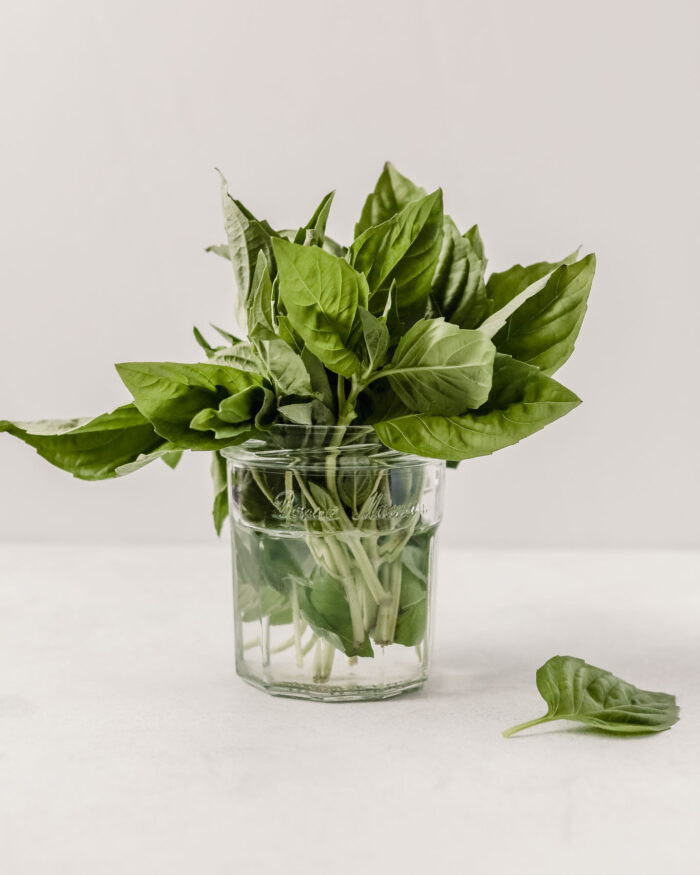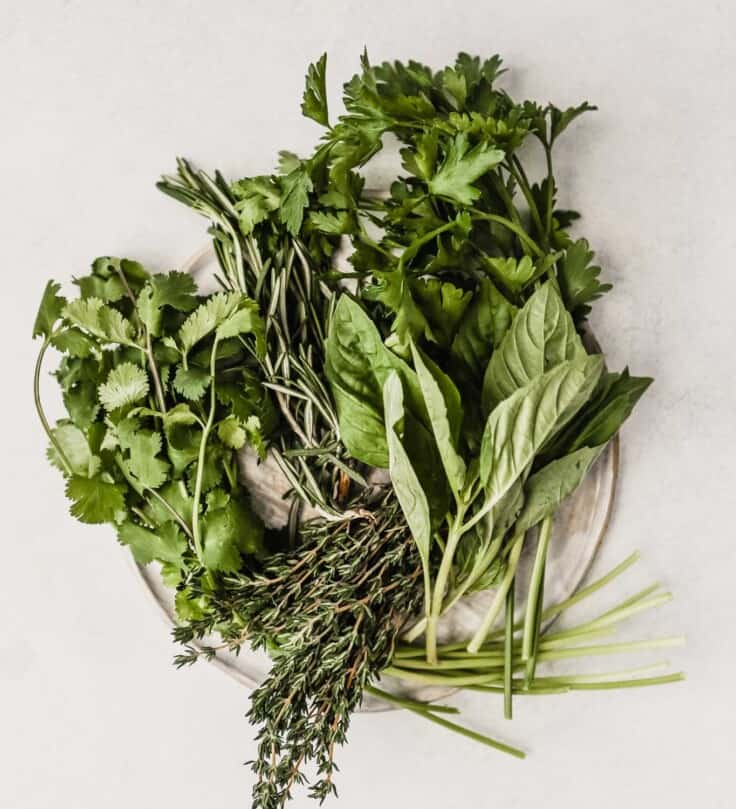Understanding how to store fresh herbs is key to good cooking. Cooking with fresh herbs is a game changer—adding both freshness and flavor. What’s frustrating is it seems fresh herbs just don’t last long enough to use! Well not anymore. I’ll be showing you how to properly store every kind of herb to enhance it’s longevity—saving you money!
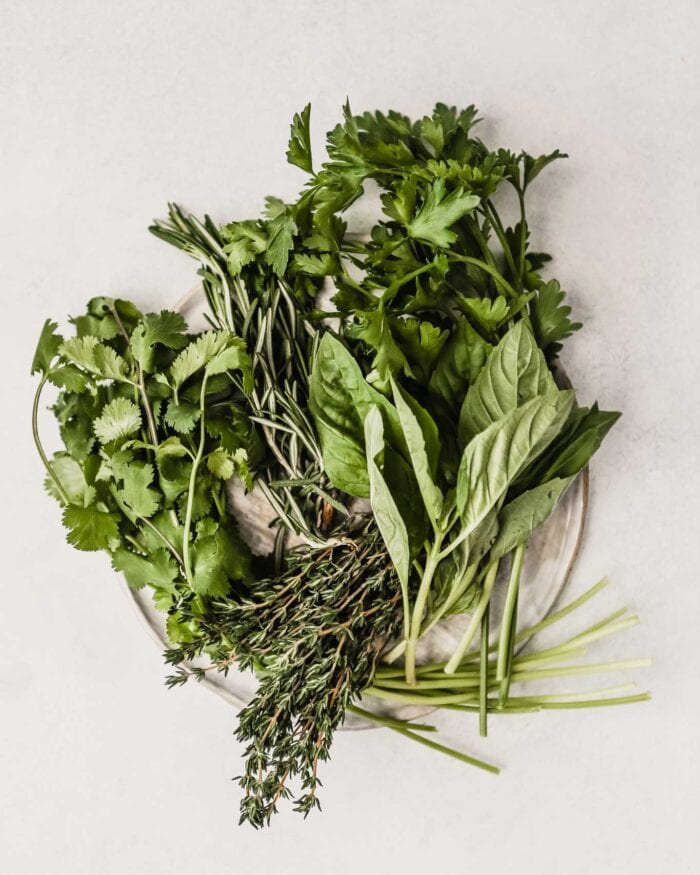
There are a few things to keep in mind when it comes to storing and increasing the longevity of fresh herbs. Before diving in, let’s take a look at what those are.
Four Main Factors in Storing Fresh Herbs
- Type of herbs you are storing
- Preparation of herbs prior to storing
- Moisture content of environment herbs are stored in
- Temperature of environment herbs are stored in
Types of Fresh Herbs
In general, there are two classes of herbs, hardy and tender.
Hardy herbs are best identified as those that have woody stems and firm leaves (think rosemary).
Tender herbs can be identified by their soft, delicate leaves and tender stems (think cilantro).
Another way to distinguish the difference is by asking yourself, “Would I eat their stems?” The stems of hardy herbs are off putting and too tough to eat while the stems of tender herbs are flavorful and nearly just as tender as the leaves.
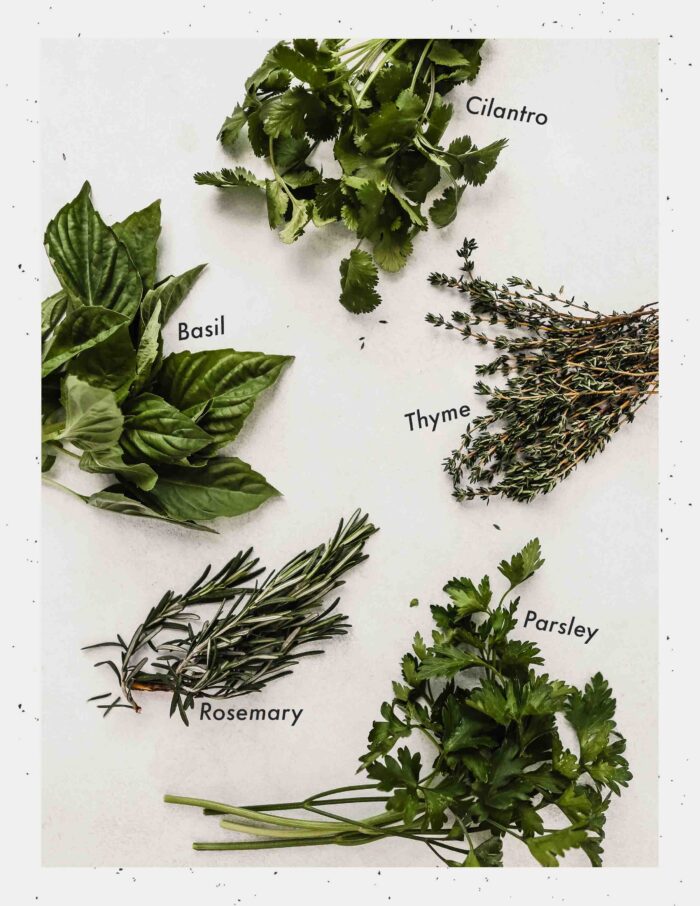
Examples of Tender and Hardy Herbs
| Soft/ Tender | Hard/Woody | The Exceptions |
| Parsley | Rosemary | Basil |
| Cilantro | Sage | Tarragon |
| Mint | Thyme | |
| Dill | Oregano | |
| Chives |
It’s Important to Wash and Dry Herbs Before Storing in Fridge
It’s important to give herbs a little rinse before storing. The reason being, both debris and bacteria are often found on herbs—and greens—which can cause the herbs to deteriorate faster.
The Best Way To Wash Fresh Herbs
- Submerge herbs in a large bowl of cold water and gently agitate with your hands.
- Transfer damp herbs to a salad spinner and spin dry.
- If you don’t have a salad spinner: spread damp herbs out on a clean kitchen towel and lightly pat or shake dry.
Store at the Optimal Moisture Level
Fresh herbs can be finicky when it comes to moisture. Too much moisture and the deterioration rate drastically increases, causing herbs to become slimy and soggy. Too little moisture and you’re on a fast track to limp herbs.
Both tender and hardy herbs need moderate moisture levels, which will be achieved in the dedicated storage methods, so stick with me.
Store at the Optimal Temperature
Similarly with moisture level, both types of herbs do best in an environment that’s cool but not cold.
The best way to achieve this moderate temperature is to store herbs in the crisper drawer and/or in the door of your refrigerator.
Not matter what, avoid storing them towards the back of the refrigerator.
How to Store Soft/Tender Herbs
To keep tender herbs lively and to avoid wilt, store them upright in a large glass jar, cup or plastic container filled with 1-inch of water. Similar to putting together a bouquet of flowers, it’s important to trim the ends of the stems before placing in the jar with water.
To protect the tender leaves from being exposed to too much air, loosely cover the jar with a plastic produce bag (the one you placed them in at the grocery store will work perfectly!) or a zipperlock bag. Then loosely seal the base of the bag around the jar with a rubber band.
Place jar in the door of the refrigerator or close towards the front—just avoid the back of the refrigerator.
Tender herbs should last about 2 weeks stored this way.
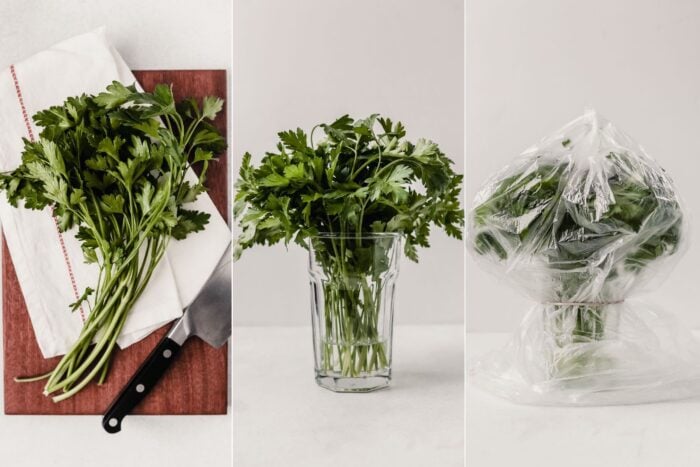
How to Store Hard/Woody Herbs
Fresh hardy herbs do best when they are loosely wrapped in slightly damp paper towels and set inside a zipperlock bag. Store the wrapped herbs in your crisper drawer for the best results.
The damp paper towel maintains optimal moisture and the zipperlock bag keeps oxygen out. Place bag in the produce drawer of the refrigerator.
Hardy herbs should last 2–3 weeks stored this way.
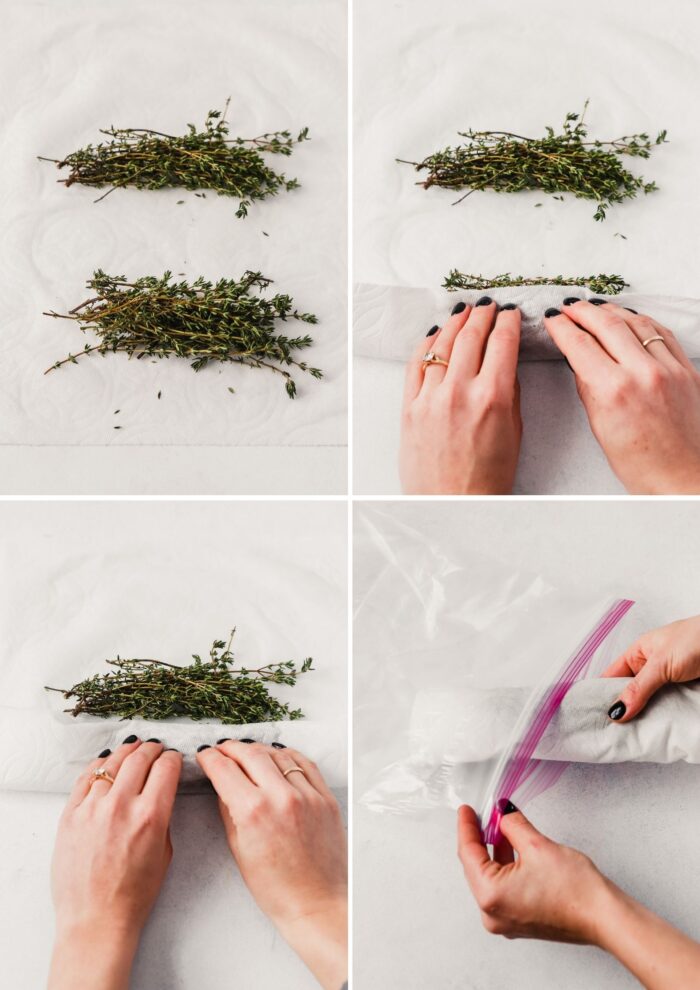
The Exceptions to the Rules
There’s always a few rule breakers! These two herbs buck the system.
Chives
Most often considered a tender herb, fresh chives should be stored as if it’s a hardy herb.
Wrap chives in a damp paper towel and place in a zipperlock bag. Place bag in the produce drawer of the refrigerator. Chives will last about 1 week stored this way.
Basil
Store basil also like a bouquet of flowers. Trim the stem ends and place in a glass jar or plastic container.
Instead of covering and transferring to the refrigerator, keep the basil uncovered and store at room temperature out of direct sunlight.
Basil should last 1–2 weeks stored this way.
